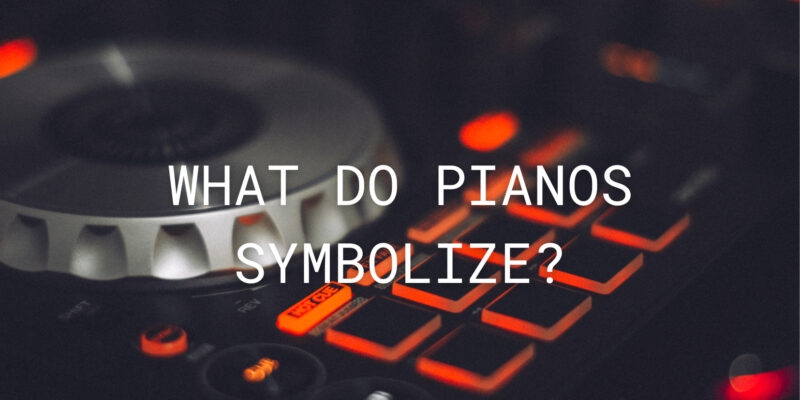Pianos have held a special place in our hearts and cultural imagination for centuries. Beyond their role as musical instruments, pianos carry deep symbolism that resonates with various aspects of human life, from art and emotion to elegance and nostalgia. Here, we explore the rich symbolism of pianos in different contexts:
1. The Universal Language of Music:
Pianos symbolize the universal language of music. They transcend cultural and linguistic barriers, allowing musicians to communicate emotions, stories, and ideas through melodies and harmonies. Pianos serve as a symbol of the power of music to unite people and evoke emotions that words alone cannot express.
2. Emotion and Expression:
Pianos are renowned for their emotional range. They symbolize the capacity to convey a wide spectrum of feelings, from joy and passion to sadness and introspection. Pianists use this instrument to express their deepest emotions, making the piano a symbol of emotional catharsis and self-expression.
3. Elegance and Artistry:
The piano’s aesthetic beauty and graceful design make it a symbol of elegance and sophistication. It is often associated with refined artistic pursuits and the appreciation of classical music. The instrument’s polished wood, ornate details, and graceful curves embody a sense of timeless elegance.
4. Creativity and Innovation:
Pianos symbolize human creativity and innovation in the realm of musical instruments. The development of the piano over centuries reflects humanity’s constant pursuit of perfection and improvement in craftsmanship and engineering.
5. Nostalgia and Memory:
Pianos are often linked to cherished memories and moments from the past. Many people have fond recollections of family gatherings, music lessons, or lullabies played on the piano. In this context, pianos become symbols of nostalgia, evoking a sense of longing for days gone by.
6. Timeless Classical Tradition:
Pianos are closely associated with classical music traditions and the works of composers like Mozart, Beethoven, and Chopin. As such, they symbolize the enduring legacy of classical music and the timeless appeal of compositions that continue to be celebrated and performed worldwide.
7. Musical Mastery:
The mastery of the piano is often seen as the pinnacle of musical achievement. Pianists who have honed their skills to virtuosic levels symbolize dedication, discipline, and the pursuit of excellence. The piano becomes a symbol of the artist’s commitment to their craft.
8. Cultural and Artistic Identity:
In various cultures, pianos hold symbolic significance as markers of cultural and artistic identity. They are often central to the creation and preservation of music that defines a culture’s heritage.
9. Cross-Generational Connection:
Pianos are passed down through generations, creating a link between family members and preserving musical legacies. They symbolize the continuation of tradition and the sharing of knowledge and talent within a family or community.
In conclusion, pianos symbolize a myriad of human experiences and values, from the universal language of music and emotional expression to elegance, creativity, and nostalgia. They serve as a testament to the enduring power of music to touch our hearts and souls, bridging gaps between generations, cultures, and emotions. Pianos remain timeless symbols of the human spirit’s desire to create, connect, and communicate through the beauty of sound.


